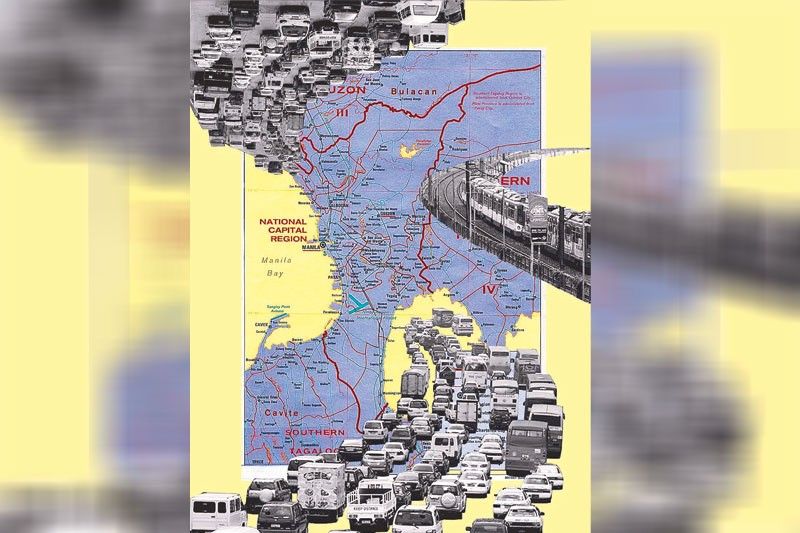Is it time to leave Manila?

MANILA, Philippines — Being stuck at home for the duration of quarantine has been one hell of a ride. For most of us living in Metro Manila, that means four months of dreary condominiums and apartments. Four months of cold concrete and oppressive clouds. Four months of daydreaming about warm sand, cool breezes and friendlier skies. It comes as no surprise, then, that many a youth has come to develop lofty dreams of moving away from the city — daring to think about something as drastic as decentralization.
But is that what we really want and need? We speak to a handful of young creatives with different experiences and perspectives regarding living in and possibly leaving Metro Manila.
To Be Back Home
Armed with two weeks’ worth of clothes and the mindset that the pandemic would be over in a matter of weeks, designer Clara Cayosa readily obeyed her parents’ wishes to go back home to Tugegarao. Four months later, she is still there.
Young STAR: What do you think draws people to Manila? What’s behind the appeal of a “big city”?
Clara Cayosa: It’s where the big universities are! I’m not saying the schools are of lesser quality than the other colleges in Manila, but the opportunities and courses offered are quite limited. Moving to Manila has always been a classic Filipino narrative, and what baffles me is that it’s been how many years since Lino Brocka’s Sa Mga Kuko Ng Liwanag was released in 1975, but until now the realities are still the same.
Over here, though, I grew up noticing that there is a negative view of moving to Manila. I remember the first time I came home during the sem break of my freshman year of college, an old high school classmate of mine remarked “Manila girl ka na” in a derogatory and wounding tone. At that time I still felt like I was still the same person since I was just gone for five months!
What are your thoughts on decentralization? Should this be a priority of the government?
I’m all for it. Manila is way too congested; it’s significantly reduced the quality of life. It was promising to hear the (Duterte) plan to decentralize, but it’s been years and it seems like he only prioritizes the people in his hometown.
You mentioned that the government’s own plans seem to be moving slowly. Is there anything you think we — the private sector — could or should be doing to decongest Metro Manila? Or, at the very least, empowering our own provinces?
Decentralize events and learning opportunities, make an effort to step out of your familiar Manila home and head back to your family’s home province. If everyone were able to practice their profession (like designers) in their own hometown, it would make it so much easier for civic participation and improvement for the local (provinces).
At this point in your life, would you willingly move out of Metro Manila?
After being here for four months, I would.
Carving Out New Spaces
After falling in love with surfing, photographer Tarish Zamora and a handful of friends decided to rent a house by the beach in La Union — little did she know it would turn into her home base for most of 2020.
As a creative that has made a name for herself in Manila, do you think making it in the big city is still what most young professionals aspire for?
Tarish Zamora: I think it depends on the person. For those who want to strive in the city, or in big industries, I think the city is still where they prefer to be. But as someone who loves being around nature and surfing, I’d prefer to live in the province, by the ocean. I’ve actually talked to some of the young adults who live here about this; they think Manila’s too busy. And with the (number of COVID-19) cases growing in Manila, they don’t really want to leave La Union.
It seems like there’s a shift that’s been happening a lot lately — people wanting to live outside of the capital.
I think it’s because Manila’s gotten too busy and messy with everything happening. The environment is too toxic to be able to focus on your work, especially if you’re a creative who constantly needs inspiration. It gets suffocating and frustrating, which also makes people in the city snobbish and judgmental. It happened to me and I didn’t like it. I would easily get depressed and uninspired too when I was still in Manila. Being around nature really helped me a lot to be able to think clearly.
What, then, are your thoughts on decentralization?
I actually think decentralization is a good idea since the local government knows what’s happening in their specific districts. It will be easier for them to make decisions and they won’t need to wait for announcements before they can set rules. This can give them more independence and to protect their provinces.
At this point in your life, would you willingly move out of Metro Manila?
Yes. To be honest, I started nesting in the house I’m renting out here in La Union. I started buying more things in the house to make it feel more like my home. Because for now, this is where I plan to stay for a while.

What We Might Not Be Seeing
The moment we approached her for this story, Manila-based urban planner Zaxx Abraham said she might not be what we were looking for — and that’s how we knew she would bring amazing insight to this discussion.
I feel like when we (young people) talk about decentralization, all we really mean is a sort of mass exodus out of Metro Manila. How do you personally understand the concept?
Zaxx Abraham: What I hear in discussions are the use of the terms decentralization and decongestion. Other countries have growth corridors or have even created new capitals (in the name of decentralization). For example, Canberra and Brasilia — both built to cater to political considerations of cities near them. But the growth of both cities did not decentralize or decongest the primary cities.
"Sydney still has traffic jams; Melbourne’s congestion is getting worse. Sao Paolo’s traffic jams are so bad, millionaires travel by helicopter, while Rio is listed as one of the 10 worst cities for traffic. (On the other hand), 'congestion' is a term used by traffic engineers to describe traffic delays. "
In casual conversation, we use congestion when what we mean is overcrowding. This is then an issue of the unequal distribution of space. Metro Manila feels overcrowded because only the rich get to access and live in bigger or open spaces.
Do people still flock to Manila? Do you think it’s still seen as an aspirational thing to live here?
Cities are places of opportunity — to earn more, to get an education, and to better their lives. Some move to bigger cities because it provides them with anonymity, as compared to smaller cities or towns that can feel suffocating because people know everyone. Cities, especially Metro Manila cities, provide more opportunities per square kilometer than others.
And yet there seems to be some sort of romanticization of provincial living.
It’s easier to migrate if you are rich. It’s called migration, quarter-life crisis, other sosyal terms, for them. For the poor, we use the term “itapon sa probinsya.” It’s never the middle class or the elite that has to balik (return). The talk of migration is always tangible to those who have savings or can depend on their family money. It is always bigoted against the “probinsyano” or taga-baryo. We perpetuate the myth through media and casual conversations that these people come to the city poor and just stay poor — eventually depending on LGUs or 4Ps help.
You’ve told us you’re not for decentralization. Why is that?
What we need is an environment where migration within cities by anybody, regardless of age, gender or economic status, is possible. In these times, migrating to another city or moving back to their hometown (through the Balik Probinsya program) should mean that the basic health needs are available to them. Are they?
What are your biggest hopes in terms of making Manila more livable?
The right to the city is a human right. We need to create cities that can offer social mobility-moving people out of poverty — by having progressive and transformative policies that are not anti-poor.
Migration is not binary. Mobility is not binary. Most of the rural workers who come to Manila still have their roots in the provinces and regularly return. Stop thinking in dichotomies; think in (terms of) spectrum and network.

















